This Gun For Hire (1942)
“I’m my own police.”
|
Synopsis: |
|
Genres, Themes, Actors, and Directors:
Response to Peary’s Review: However, it’s difficult to contemplate Ladd’s fine performance in isolation, given the importance of his relationship with “beautiful, buxom blonde Lake”, who in this film “found her ideal screen partner”. Peary notes that “with those dreamy eyes, a peek-a-boo hairstyle, and a husky voice to match Ladd’s”, they “are an electrifying screen couple” — a statement made all the more complex given that Lake is happily engaged to a policeman (Robert Preston) who’s on Raven’s trail. Naturally, loyalties quickly become conflicted, and it’s fascinating to watch as Lake and Ladd — who are clearly smitten with each other on some level — carefully negotiate their positions. Indeed, whenever they’re on-screen, we’re glued; the rest of the “taut” storyline, while competent and finely directed, feels mostly like icing. Interestingly, in his review, Peary refers to This Gun For Hire as “one of the few forties crime dramas that weren’t really noir films” — yet it certainly possesses many noir elements (including atmospheric cinematography and a sense of deeply pervasive cynicism), and it’s generally considered by others to be part of this genre. Perhaps Peary’s opinion is due to the occasional shifts in tone throughout the film — most notably when Lake performs a couple of unusual musical ditties (by Jacques Press and Frank Loesser); meanwhile, Cregar’s performance as Raven’s most direct nemesis lacks a requisite sense of menace — he’s a bit too much of a blubbering coward to be fully convincing in the role. However, all told, I would most certainly classify this one stylistically as noir. Two of my favorite moments: Lake unexpectedly pecks Ladd on the cheek; Lake leaves a steady trail of evidence behind her while being held hostage by Ladd. Redeeming Qualities and Moments:
Must See? Categories
Links: |
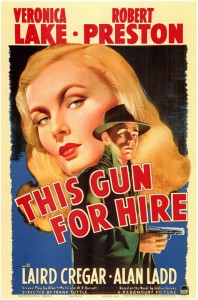
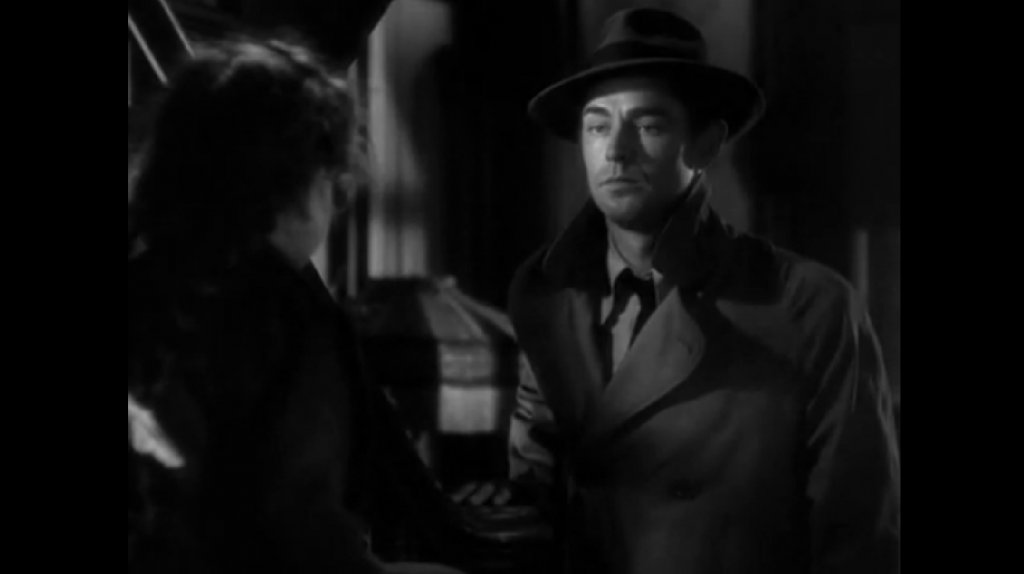
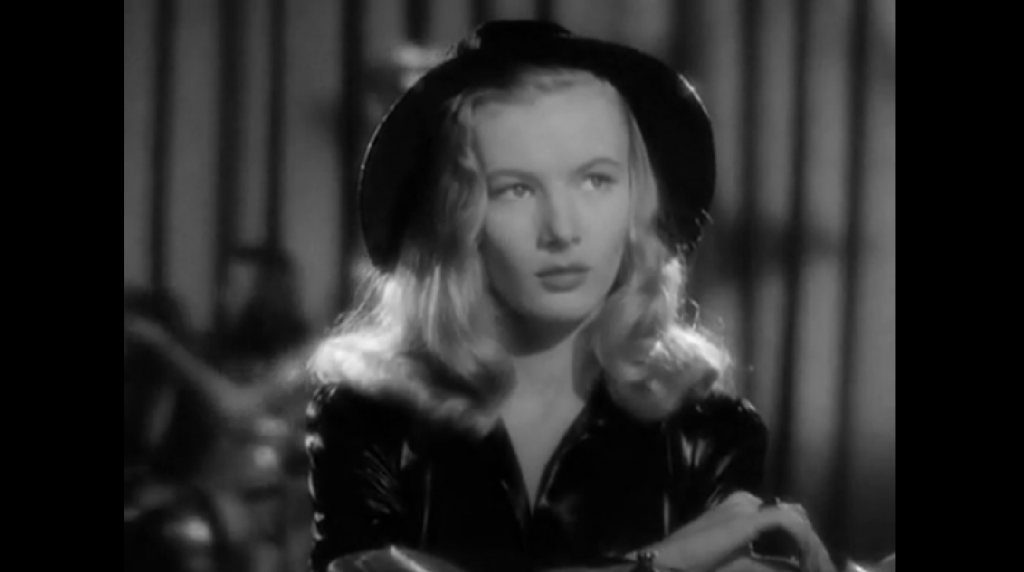
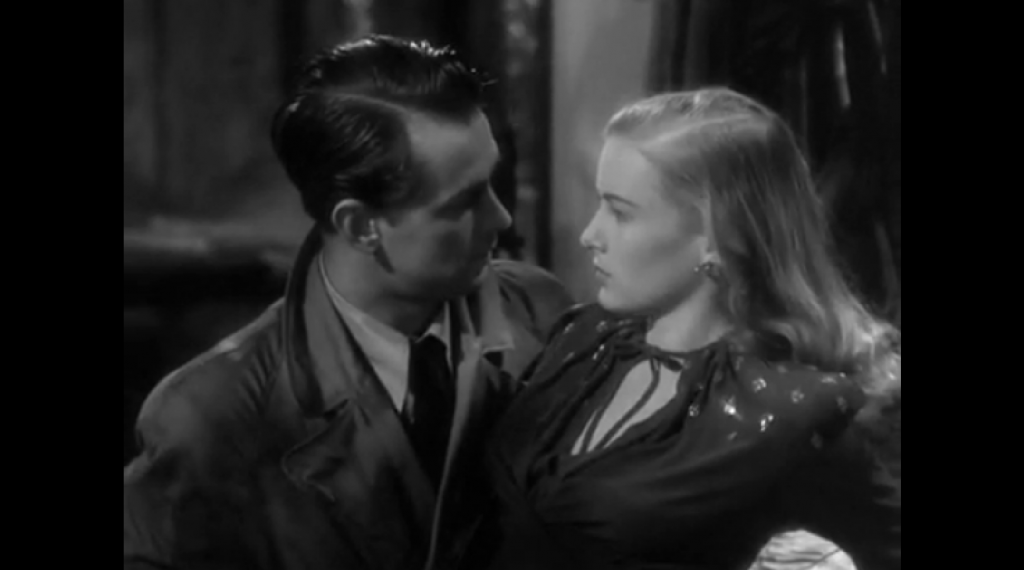
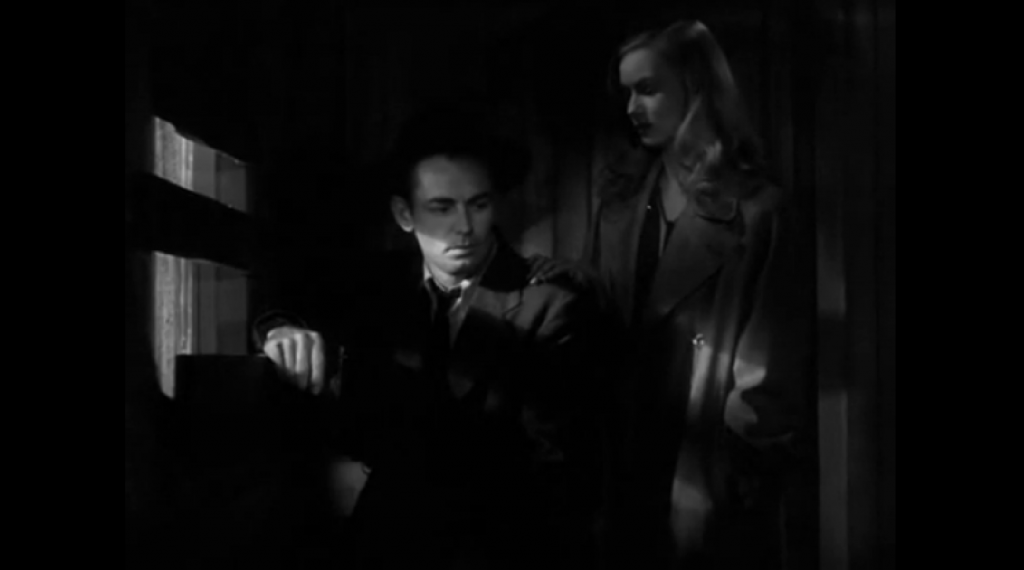
3 thoughts on “This Gun For Hire (1942)”
A once-must at least, for the performances – esp. Ladd and Lake – and for the ride!
~of course, it’s a bit overly contrived – and you have to turn a blind eye to a few coincidences – but it plays like a bat out of hell, it looks great and it’s loaded with style. (Director Frank Tuttle worked a lot in Hollywood – and eventually named names in front of the HUAC – but he doesn’t seem to be remembered for much before or after this film.)
This is one of Ladd’s best performances and Lake is nothing short of yummy (in looks and in attitude). I suppose it may look like their characters become “smitten” with each other, but to me it reads more like empathy on her part and welcome companionship on his. Ladd’s character is an unfortunate misfit but he’s not all bad (heck, he loves cats – when he isn’t killing them – and he’ll buy you a new dress if he rips the one you’re wearing when he slaps you) – he’s just apparently known nothing but bad treatment and betrayal. (I haven’t read the source material, but now I might want to: it seems that, in Graham Greene’s novel, Raven’s aunt didn’t beat him at one point because he ate a piece of chocolate, but instead because she walked in on him when he was doing something adolescent boys are particularly fond of doing – not that Hollywood could give voice to *that* in 1942!)
I’m partial to tough talk, and there’s a fair amount on parade. Preston gets to say fun things like “Go milk a duck.” But my favorite probably belongs to a minor character who says to Ladd, “Go ahead! Wipe him out!”
This is a terrific popcorn flick, even if it may not invite multiple viewings. I love the last five minutes!
I struggled with how to define the way Ladd and Lake feel about each other — it’s tricky territory. I finally settled on “smitten” simply because theirs seems like an instant-chemistry kind of thing, even if it doesn’t really translate into the possibility of romance.
The “go milk a duck” line is classic — I’m glad you remembered to call that one out!
Meanwhile, how ’bout those Loesser/Press songs — esp. the first one? Lake nails them.
Yes, Lake is magical as a magic act chanteuse! I’ve been more than “smitten” with her myself. Guess that’s why I wrote her into a play, eh? 😉